CONCRETE DRIVEWAYS IN CARY, NC
Brought to you by Cary Concrete Experts – Your Trusted Partner in Custom Precision Concrete Driveways.
Your driveway is the first thing people notice when they arrive at your home. At Cary Concrete Experts, we specialize in building concrete driveways in Cary, NC that combine strength, durability, and curb appeal. Whether you’re installing a brand-new driveway, replacing an old cracked one, or exploring decorative finishes, our team delivers professional results designed to last decades.
CONCRETE DRIVEWAYS IN CARY, NC
Brought to you by Cary Concrete Experts – Your Trusted Partner in Custom Outdoor Hardscaping
our driveway is the first thing people notice when they arrive at your home. At Cary Concrete Experts, we specialize in building concrete driveways in Cary, NC that combine strength, durability, and curb appeal. Whether you’re installing a brand-new driveway, replacing an old cracked one, or exploring decorative finishes, our team delivers professional results designed to last decades.
What Is a Concrete Driveway?
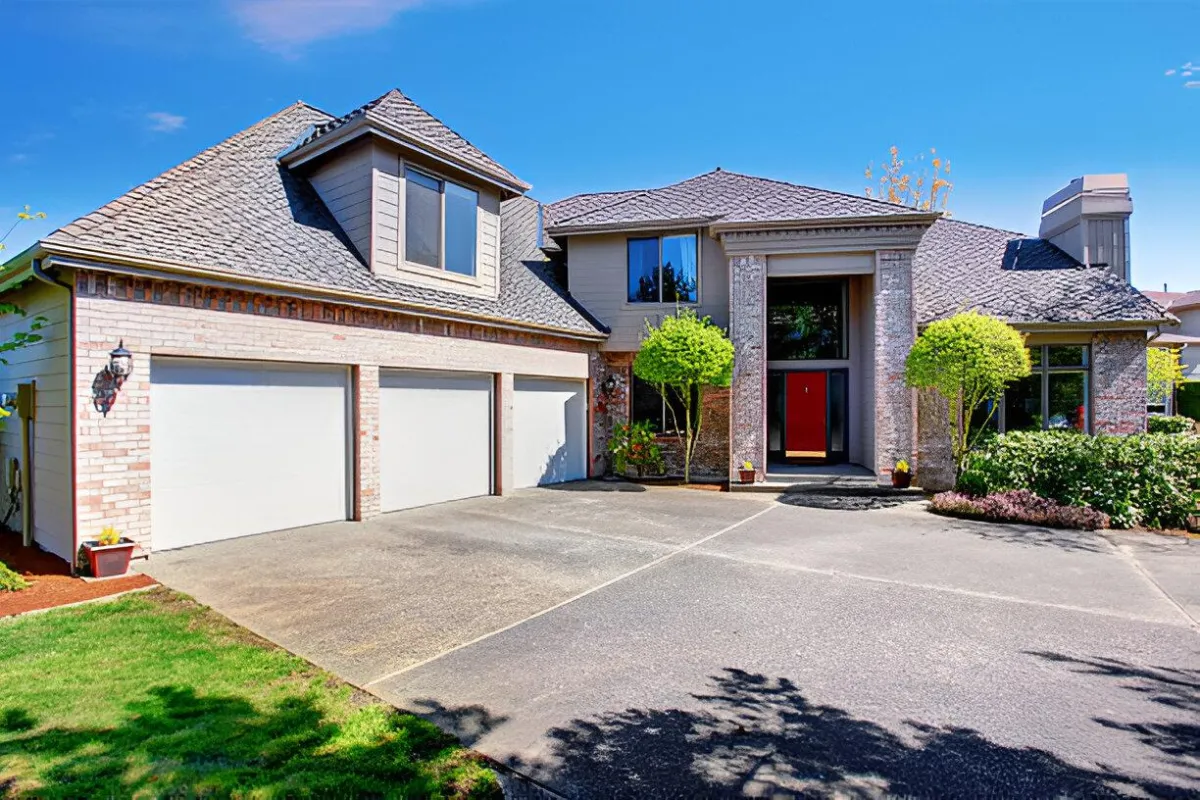
A concrete driveway is a paved surface created from a mixture of cement, sand, gravel, and water. Once poured, it hardens into a solid slab capable of supporting heavy vehicles and resisting weather damage. Compared to gravel or asphalt, residential concrete driveways are popular for their long lifespan, low maintenance, and polished appearance.
For more on proper design and construction standards, see the American Concrete Institute.

Why Choose a Concrete Driveway?
A concrete driveway is a paved surface created from a mixture of cement, sand, gravel, and water. Once poured, it hardens into a solid slab capable of supporting heavy vehicles and resisting weather damage. Compared to gravel or asphalt, residential concrete driveways are popular for their long lifespan, low maintenance, and polished appearance.
For more on proper design and construction standards, see the American Concrete Institute.
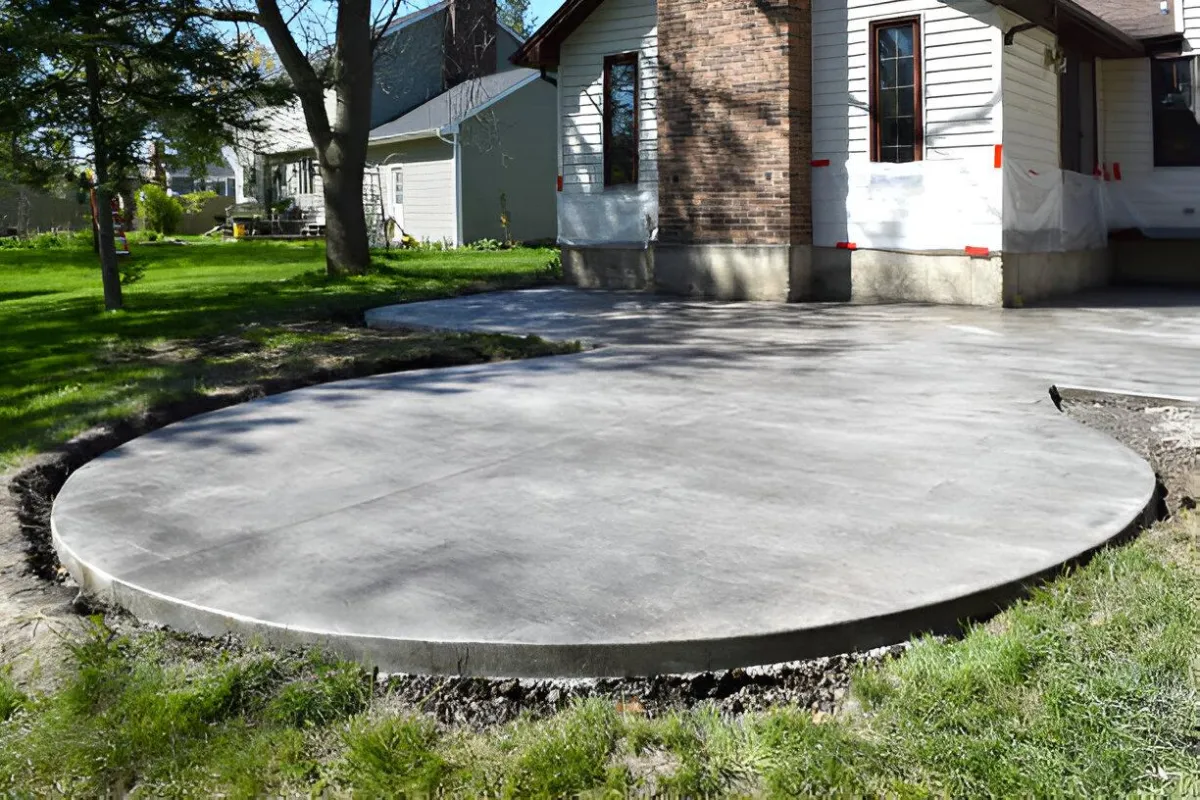
DURABILITY THAT LASTS FOR DECADES
A properly installed concrete driveway can last 30–40 years. We reinforce with rebar or mesh and use high-strength mixes to reduce cracking and surface wear.
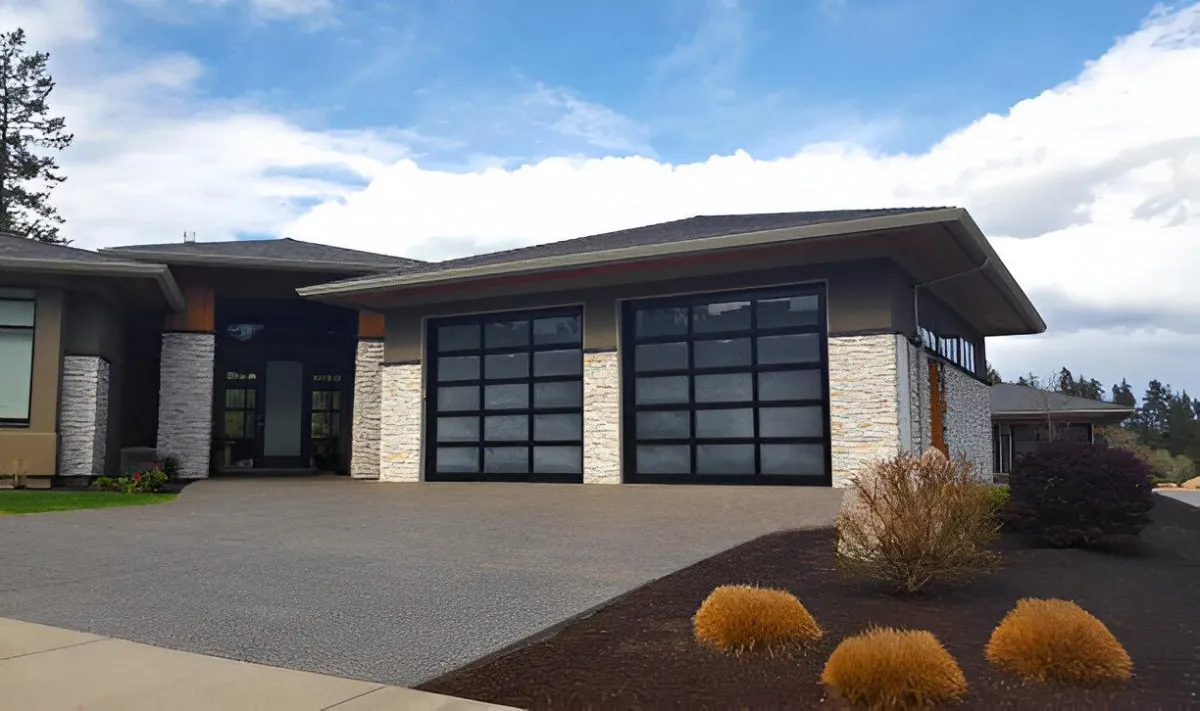
LOW MAINTENANCE
Unlike asphalt, which needs resealing every 3–5 years, concrete requires minimal upkeep — sweeping, power washing, and resealing every few years. For more details, see Angi’s concrete driveway maintenance guide.
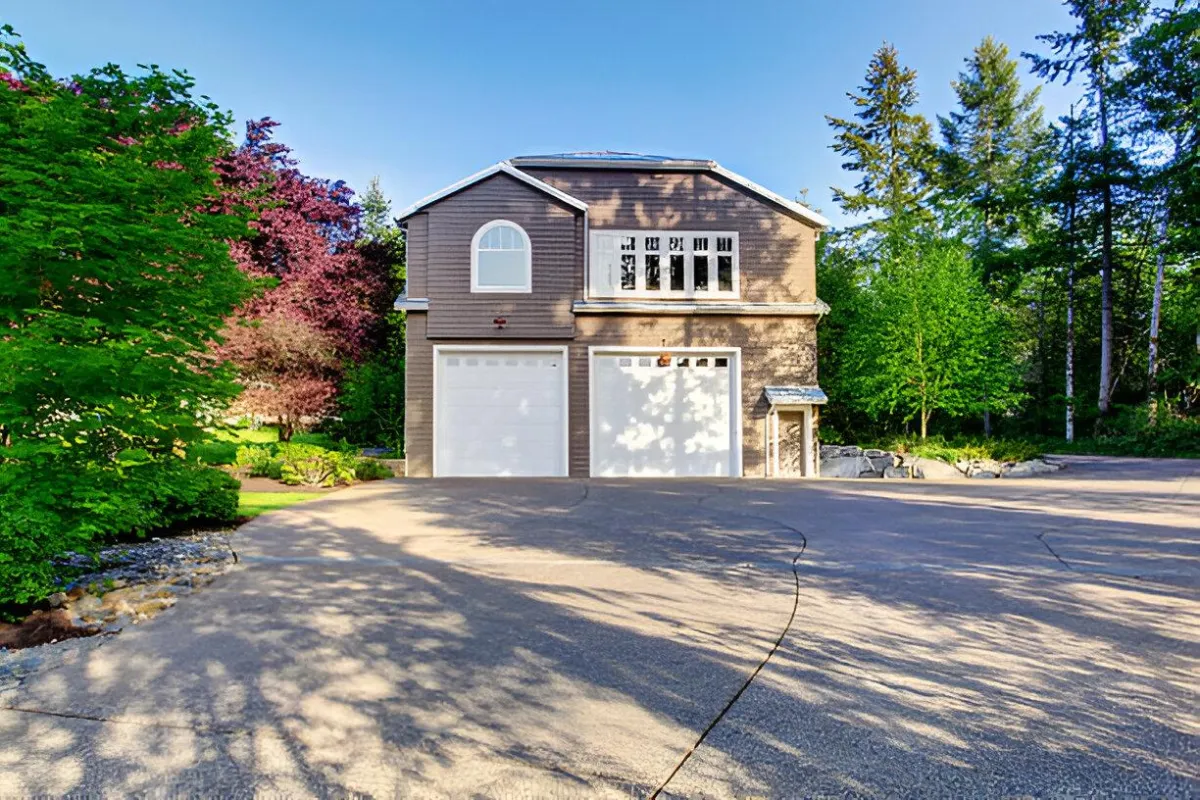
BOOSTS CURB APPEAL
From smooth finishes to decorative stamped concrete driveways in Cary, we offer options that elevate your home’s appearance. Decorative stains, colors, or exposed aggregate finishes add even more customization.
Why Do Concrete Driveways Crack?
Even the best driveways can develop cracks from:
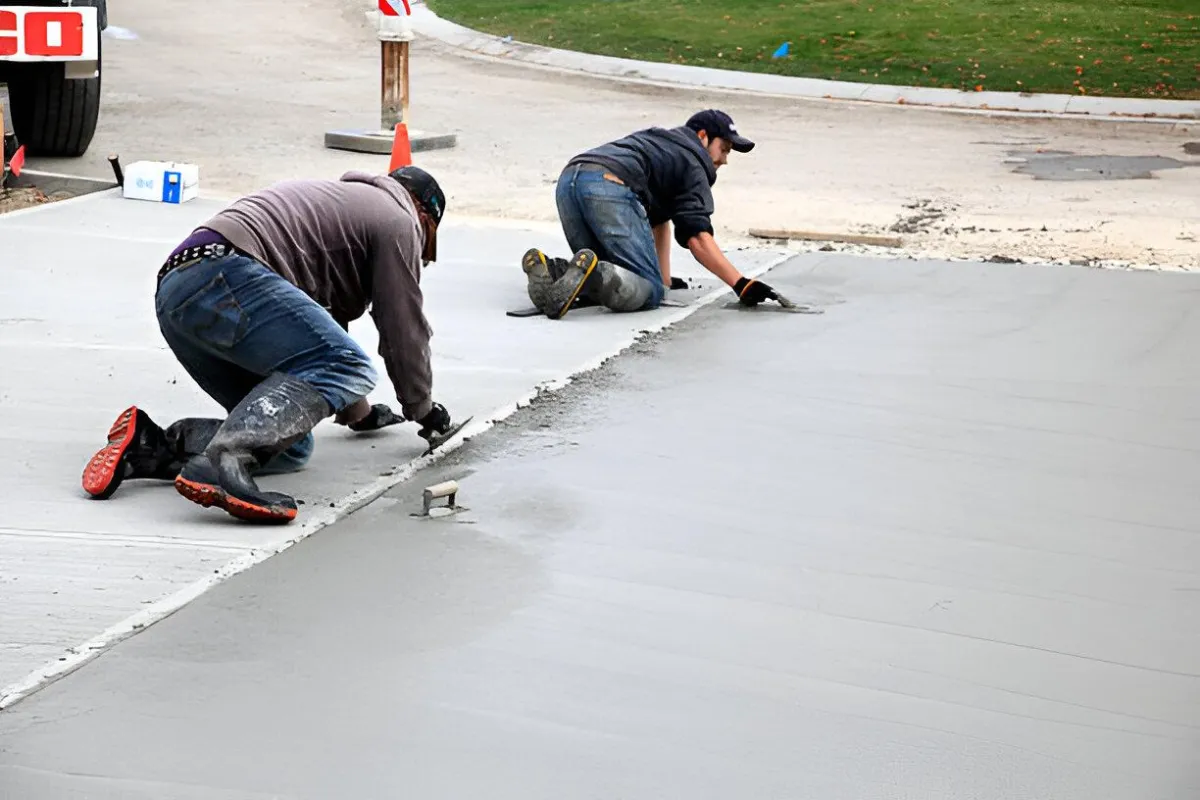
Improper installation or poor base prep
Freeze-thaw cycles in North Carolina weather
Heavy vehicles beyond design limits
Drainage problems causing pooling water
At Cary Concrete Experts, we address these risks by installing solid gravel bases, reinforcing slabs with steel, applying sealants, and ensuring proper slope for drainage. For more details, see ACI’s repair and maintenance guidelines.
Concrete vs Asphalt Driveways
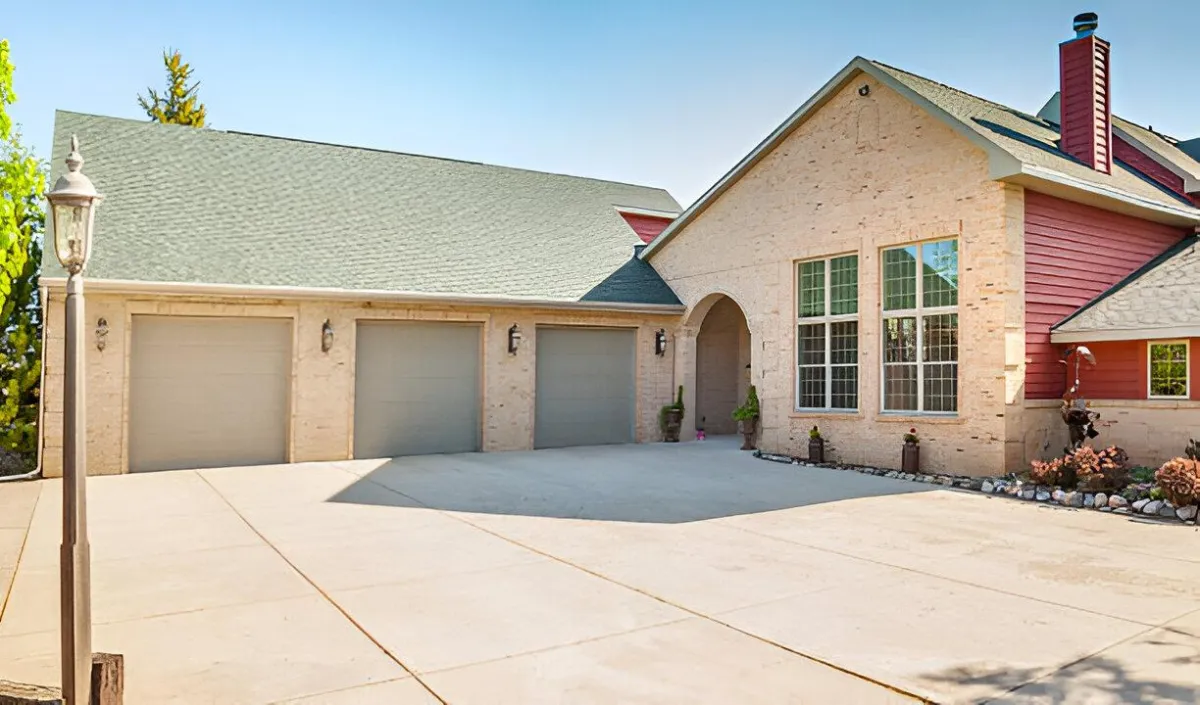
While asphalt costs less upfront, concrete driveways in Cary deliver better long-term value, durability, and design flexibility.

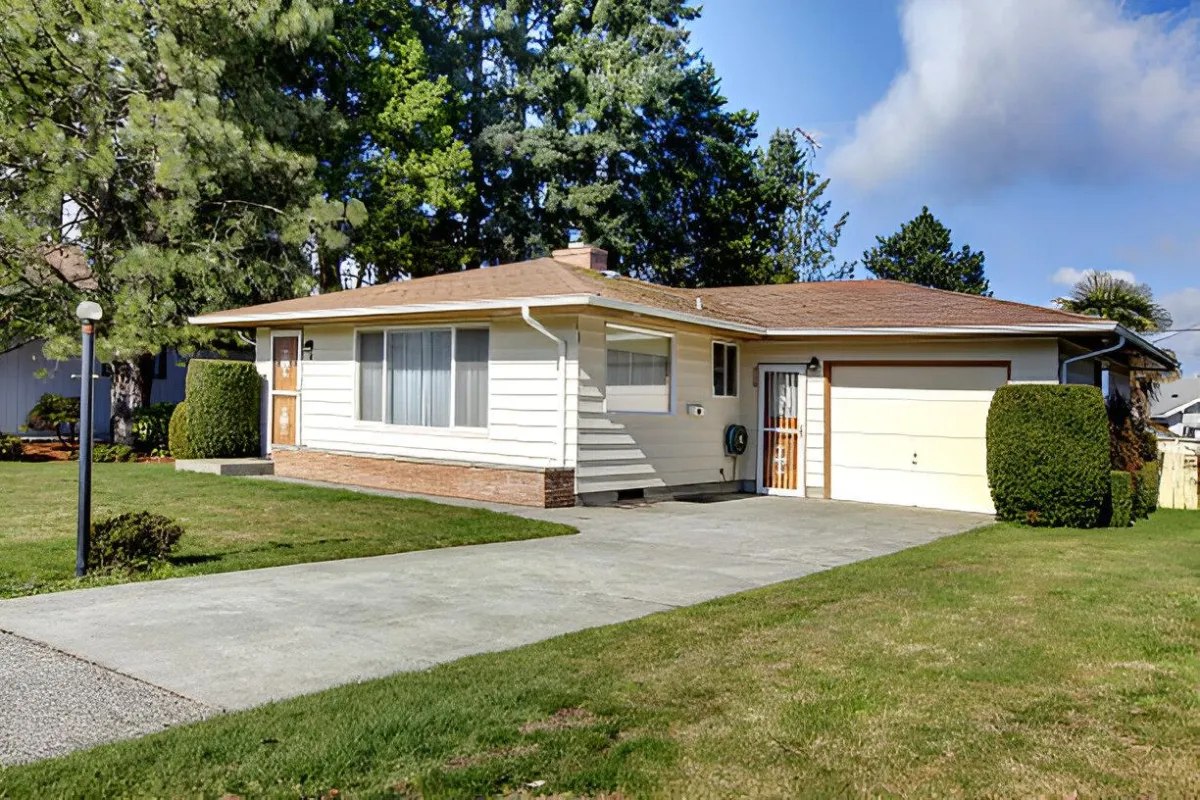
Are Concrete Driveways Worth the Cost?

Yes. Though concrete costs more initially than gravel or asphalt, it pays off over time with better durability, less maintenance, and increased property value. With a lifespan of 30+ years, a concrete driveway is a smart investment.
For a cost comparison by material, visit Concrete Network’s average cost of a concrete driveway.
Cracks can happen even in the best-installed driveways. Here's why:
Improper installation: Lack of sub-base preparation or rushed curing time
Freeze-thaw cycles: Water expands when frozen, stressing the concrete
Heavy loads: Excessive weight beyond design limits
Poor drainage: Water pooling can accelerate wear
Cary Concrete Experts takes these risks seriously. We mitigate cracks by:
Installing a strong gravel base
Using rebar or mesh reinforcements
Applying high-grade sealants
Designing proper slope for drainage
Why Do Concrete Driveways Crack?
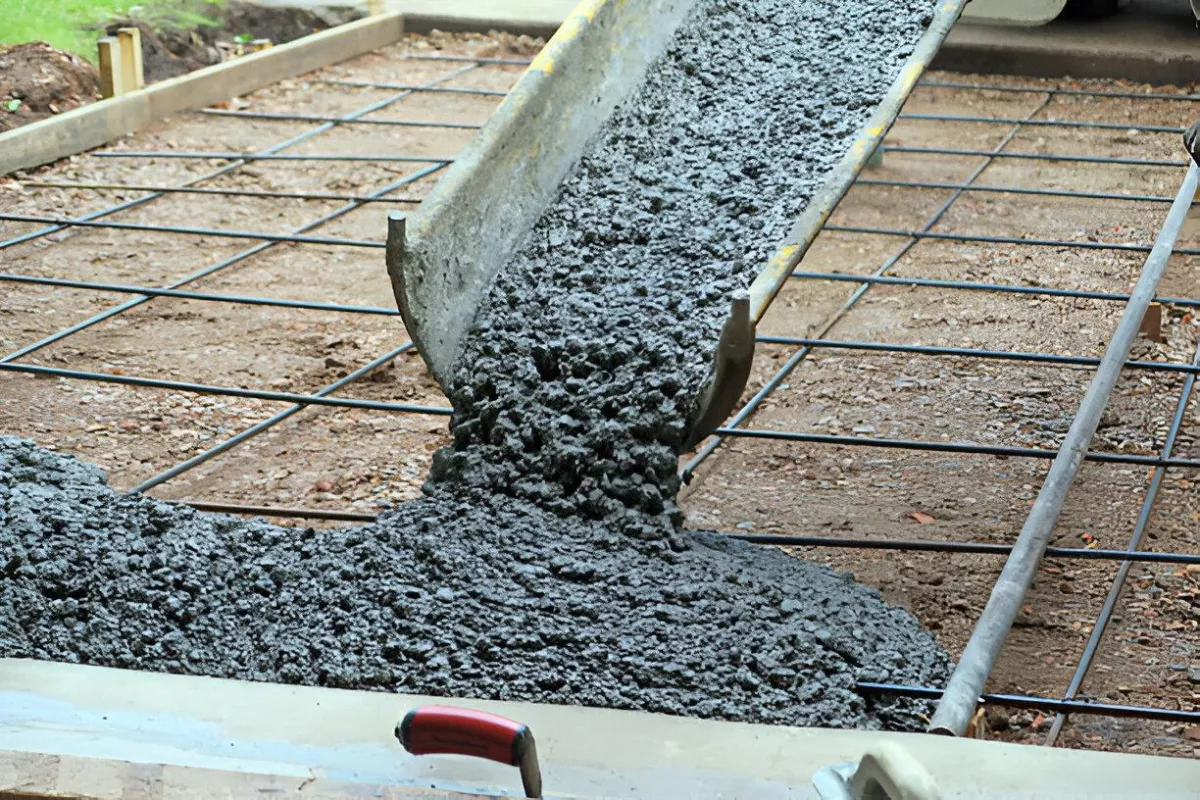
WHY CHOOSE US?
Choose Concrete Experts in Cary, NC for unparalleled craftsmanship, reliable service, and customer-focused solutions. We combine years of experience with premium materials to deliver durable and aesthetically pleasing results for every project. Whether it’s residential or commercial, we’re dedicated to exceeding your expectations with on-time delivery, transparent communication, and customized designs that bring your vision to life.
Types of Concrete Driveways We Install
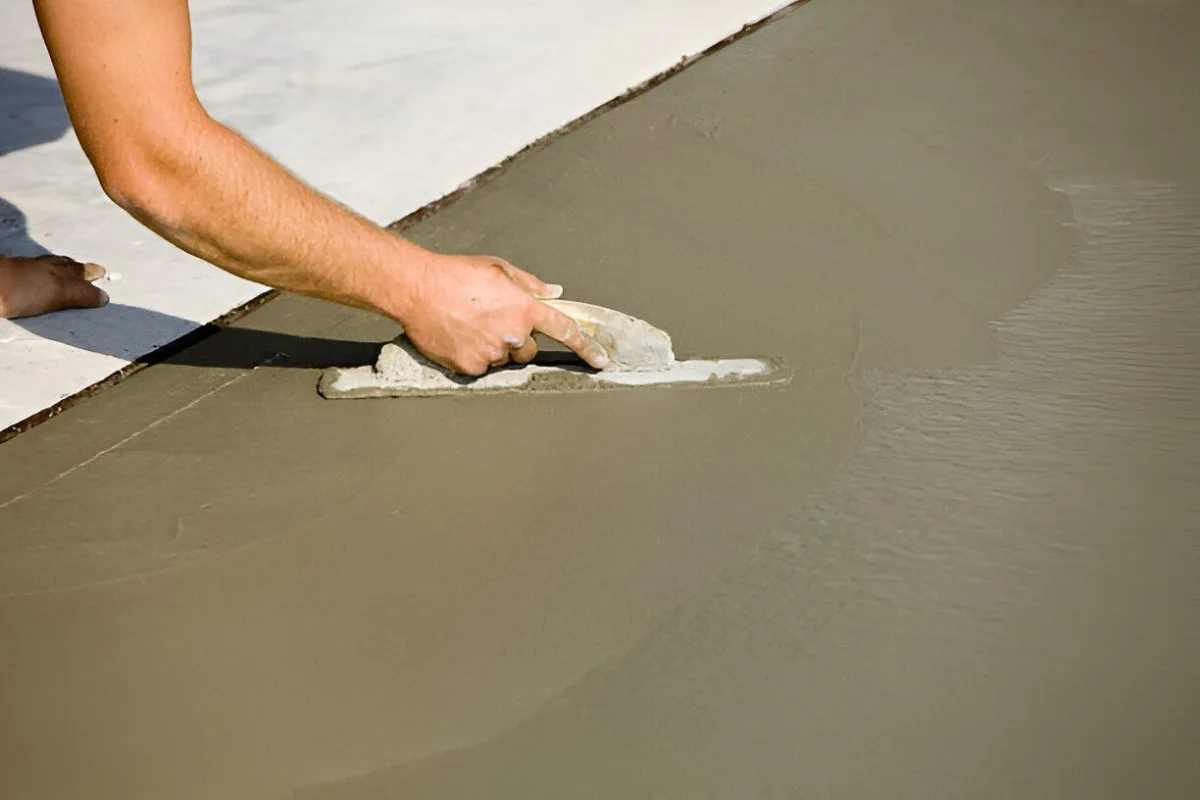
At Cary Concrete Experts, we offer multiple finishes and designs, including:
Standard Concrete Driveways
Clean, classic, and cost-effectiveStamped Concrete Driveways
Decorative options that mimic stone, tile, or brick. Learn more about our stamped concrete services
Stained or Colored Concrete
Add color to match your home’s exterior palette and increase visual appeal
Exposed Aggregate Finish
Showcase the natural beauty of decorative stone in your driveway surface
How Long Does It Take to Install a Concrete Driveway?
Depending on size and complexity, most projects take 3–5 days, including:

Site Prep: Clearing and compacting the soil
Framing: Laying out the form boards
Pouring: Placing and leveling the concrete
Curing: Allowing 48–72 hours for the concrete to harden
Sealing: Optional step for surface protection and shine
We also make sure you can walk on your driveway within 24–48 hours and drive on it within 7 days.

Why Work With Cary Concrete Experts?
Free On-Site Consultation – Personalized advice and estimates.
Design Guidance – From plain slabs to decorative concrete finishes.
Precision Grading & Drainage – Prevents cracks and water issues.
High-Quality Materials – Concrete mixes rated for long-term performance.
Clean, Safe Job Sites – We respect your property at every step.
On-Time, On-Budget – No hidden costs or unnecessary delays.
We’re proud to be the top choice for driveway installation in Cary NC and surrounding communities.
Frequently Asked Questions
What is a concrete driveway?
A concrete driveway is a paved surface made of cement, sand, gravel, and water. Once hardened, it creates a durable slab that supports vehicles and resists weather damage.
Why do concrete driveways crack?
Cracks occur from freeze-thaw cycles, heavy loads, poor installation, or drainage issues. We minimize these risks with strong bases, rebar, sealants, and proper slope design.
Are concrete driveways better than asphalt?
Yes. Concrete lasts 30–40 years compared to asphalt’s 15–20, requires less maintenance, and offers decorative options. Asphalt costs less upfront but requires more frequent resealing.
Are concrete driveways worth the cost?
Absolutely. Though initial costs are higher, concrete provides long-term value and boosts curb appeal. For permits, check the Town of Cary’s construction permit .
Get Ready for a Better Driveway with Cary Concrete Experts
Tired of searching for “who installs concrete driveways near me”? Trust Cary Concrete Experts for a driveway that’s strong, stylish, and built to last.
Contact us today for a free consultation and let us design the driveway your home deserves.

Driveways That Impress.
Quality That Endures.
Contact Us
+1 (984) 464-4520
4000 Centregreen Way Suite 210, Weston Pointe, Cary, NC, 27513 USA
Copyright © 2025 Concrete Experts - Cary, NC - All Rights Reserved | Privacy Policy | Terms and Conditions
Frequently Asked Question

DRIVEWAYS THAT IMPRESS. QUALITY THAT ENDURES.
Contact Us
+1 (984) 464-4520
4000 Centregreen Way Suite 210, Weston Pointe, Cary, NC, 27513 USA



